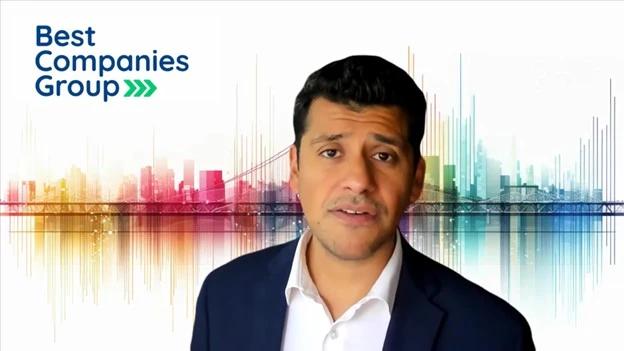
When is it OK to ask for help? The answer to this question has changed significantly over the course of my 25-year career in golf course management.
Our profession used to be primarily focused on turf quality and long hours. Superintendents are also now required to have a comprehensive knowledge of business, finance, human resources, project management, executive leadership, human psychology and more. It’s a long list.
I don’t highlight any of this as a negative. On the contrary, I feel it’s a testament to the quality of the people in the profession and a direct result of the efforts over the years to make people outside of our industry aware of the value and expertise a golf course superintendent adds to their organization. Still, it brings a need to evolve in how we approach our organizational role and manage our time.
Early in my career, I felt that the more hours I worked and the more responsibility I could take on, both personally and for my department, were a badge of honor representing my “value.” In some of my employment situations, this ended up being true and reinforced what I’ve come to see as an unhealthy way of living. It ultimately led to a situation where a lot of my self-worth was linked to the success of the course. When it struggled, I struggled.
This approach to my job negatively affected me and the people around me. As I attempted to understand how I got there, I realized that I wasn’t alone; this way of thinking was endemic in our industry.
As superintendents, we’re great at saying yes, but when we take on too much, it often comes at a personal cost in the form of physical health, mental health and the health of our relationships with the people we care about. The foundational job of being a golf course superintendent is more than a full-time requirement, but how often do you get asked to take on a problem or task in addition to the scope of your assumed daily workload? In addition to our daily responsibilities, we often get asked to take on the “I-don’t-know-who-handles-this-for-us” or the “I’m-not-sure-but-I’m-pretty-sure-the-super-can-figure-it-out” tasks.
Over time, as we continue to say yes, it becomes the expectation, and you must sacrifice important aspects of your lives to meet those expectations. I’m well aware that “no” is a four-letter word in our industry, so I’m not suggesting you should start saying that. Instead, know when to ask for help — and to not be afraid to do so.
In hindsight, I think that one of the biggest mistakes that I’ve made over the course of my career is feeling like asking for help is a sign of weakness or is viewed as an unwillingness or an inability to complete a task. I’ve found the opposite to be true. Successful executive leaders in business know that they aren’t doing what’s best for their organization when they are overwhelmed and spread too thin, so why wouldn’t we approach our jobs the same way?
The problem is easy to identify. But what about the solution? The shortage of assistant superintendents is well-documented, so delegation isn’t always an option. What about outsourcing? I know this goes against how many of us were raised in the industry, but bringing outside help to support certain parts of an organization has been normalized for a long time in business for many of the same reasons I’ve already discussed.
There are many responsibilities as a superintendent that are non-negotiable and that only you can handle. But tasks like human resources, IT, project management, compliance and employee recruitment can be effectively outsourced, freeing up your schedule while bringing massive benefits to the organization.
With the recent boom in golf course construction and renovation, project management is an area where there is a significant opportunity for superintendents and club leadership to outsource some of the workload. While we all like the fun parts of golf course construction, many parts of the process aren’t as enjoyable and demand a significant amount of time, energy and expertise, such as permitting, budgeting, bid coordination, environmental compliance, material procurement, inventory management, contract negotiations, oversight, quality control and communication. These tasks are complex and can be challenging to manage successfully. They are integral to the overall project’s success, so having a dedicated project manager who focuses on these areas can be highly beneficial.
Major projects tend to be emotional, especially if they involve a course closure, close vote and assessment. There are many situations where a superintendent got too involved in the process and ended up with their face on the project rather than the board, committee or owner who decided to move it forward. A good project manager can help buffer the politics by assisting in the communication and education process, making the process more data-driven and less emotional. The layer of separation created by inserting an objective third-party manager into the process can change the entire energy and allow the superintendent to focus on the project’s overall success and not be worried about the potential for a political misstep.
Your club’s tolerance for assuming liability is another area to consider when determining what project components should be outsourced. Improper permitting and environmental compliance issues can completely derail a project and potentially lead to hefty fines for your club or ownership.
In many cases, the superintendent becomes responsible for understanding and ensuring that the proper permits are in place and that the property maintains compliance throughout the project duration. This demands a significant amount of time, attention and focus, and details can get overlooked when we’re spread too thin. Outsourcing this project component removes the superintendent from the line of fire if something goes wrong or the process gets held up for some reason and allows that burden to fall to your project manager.
One of the most incredible things about the people in our industry is that they say “yes” more than “no.” This holds true for everything from serving on the boards and committees of our associations to donating time to help the local baseball team when their field isn’t up to snuff. As the scope of your job responsibilities continues to expand, asking for help needs to become as easy as offering it.
The industry will continue to evolve and so will expectations on golf course superintendents. As the people around you continue to realize your value in areas of the operation that fall outside your job description, you will continue to see your workload expand. Remember there is strength in knowing when to ask for help and the level of respect from the people around you will only grow when you do.

Explore the December 2022 Issue
Check out more from this issue and find your next story to read.
Latest from Golf Course Industry
- Editor’s notebook: Green Start Academy 2024
- USGA focuses on inclusion, sustainability in 2024
- Greens with Envy 65: Carolina on our mind
- Five Iron Golf expands into Minnesota
- Global sports group 54 invests in Turfgrass
- Hawaii's Mauna Kea Golf Course announces reopening
- Georgia GCSA honors superintendent of the year
- Reel Turf Techs: Alex Tessman





